Brazil Zika virus: 'War' declared on deadly mosquitoes
- Published
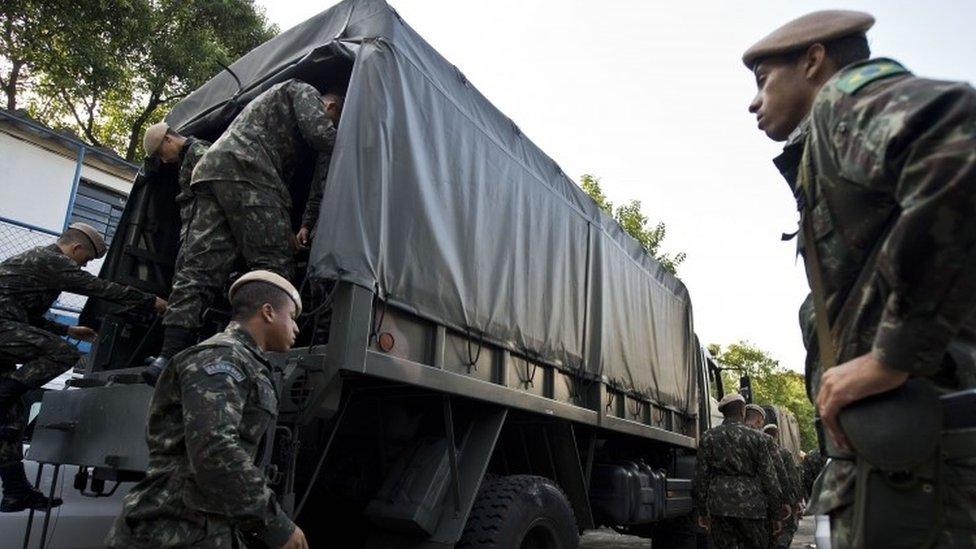
The Brazilian military has been deployed in force to combat the Aedes aegypti mosquito
Brazilian President Dilma Rousseff has declared war on mosquitoes responsible for spreading the Zika virus in a recorded TV message to the nation.
She said a national mobilisation day would be held on Saturday, during which thousands of soldiers and state employees would work to eradicate the insects in homes and offices.
Ms Rousseff said most mosquitoes breed in or near people's homes.
Zika has been linked to babies being born with underdeveloped brains.
It is spreading through the Americas and the World Health Organization (WHO) has declared the microcephaly disease linked to the virus a global public health emergency.
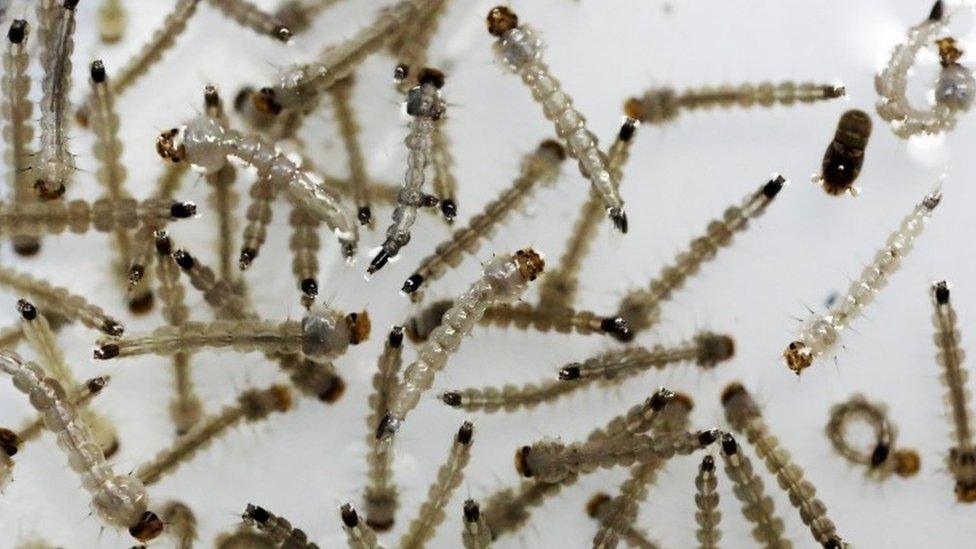
Laboratories in the US and Europe say they need samples from previous outbreaks if they are to carry out effective research on the evolution of the virus
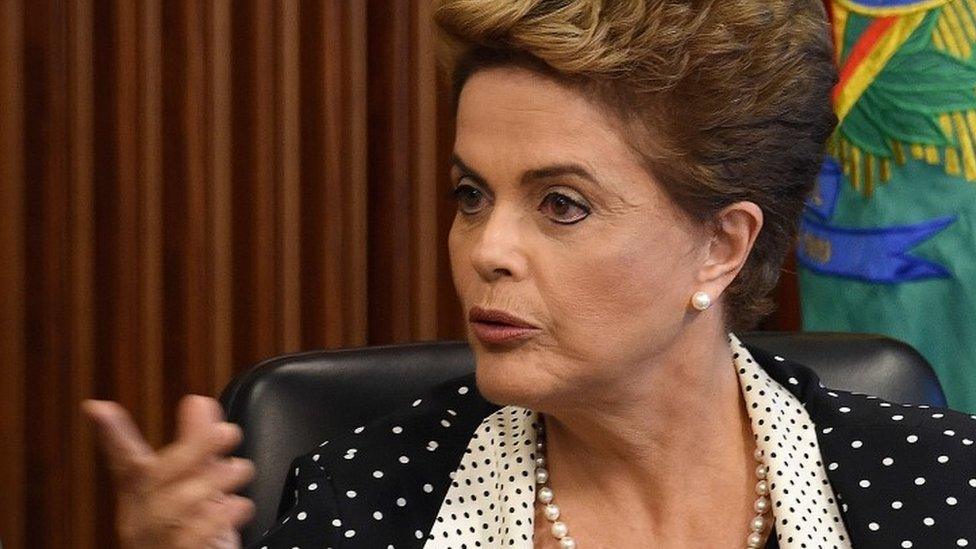
President Rousseff said that everything would be done to help mothers, pregnant women and children from the effects of the virus
In her address, Ms Rousseff said that substantial federal resources were being released to fight Aedes aegypti mosquitoes, because it was a fight that "cannot be lost".
"All of us need to take part in this battle," she said.
"We need help and good will from everyone. Collaborate, mobilise your family and your community.
"I will insist, since science has not yet developed a vaccine against the Zika virus, that the only efficient method we have to prevent this illness is the vigorous battle against the mosquito."
The president also said that she wanted especially to send a "comforting message" to mothers and future mothers.
"We will do everything, absolutely everything in our reach to protect you. We will do everything, absolutely everything we can to offer support to the children affected by microcephaly and their families."
Major obstacle
In a separate development, UN and US health officials have accused Brazil of not sharing enough samples and data to determine whether the virus is responsible for the increase in the number of babies born with abnormally small heads.
Zika infections will rise in Colombia, says president
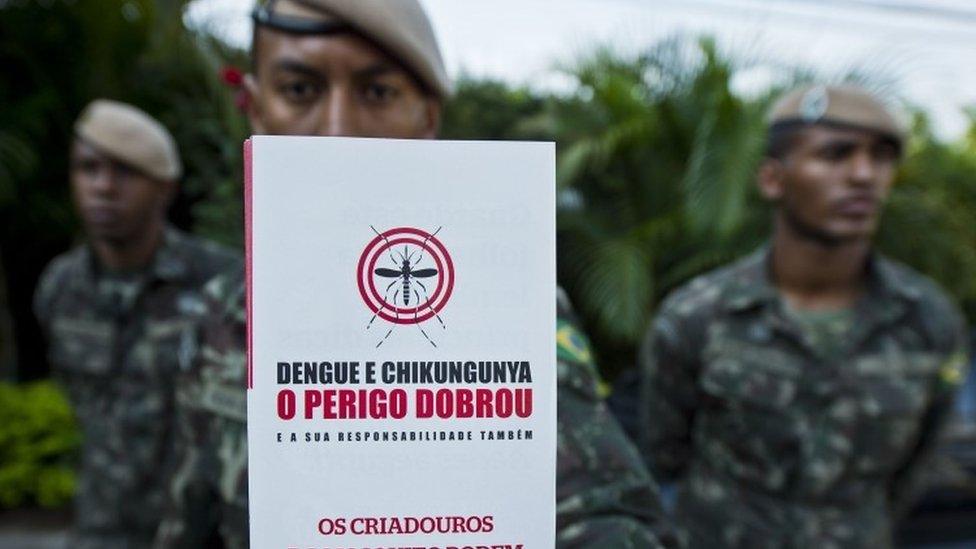
The Brazilian military will be at the forefront of Saturday's mobilisation day against the virus
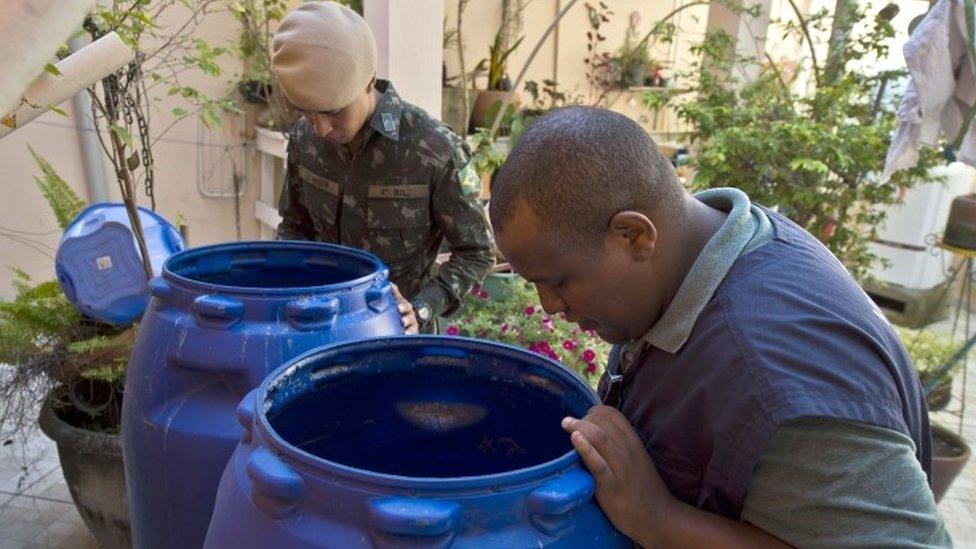
The authorities say no stone will be left unturned in Brazil's efforts to eradicate disease-carrying mosquitoes
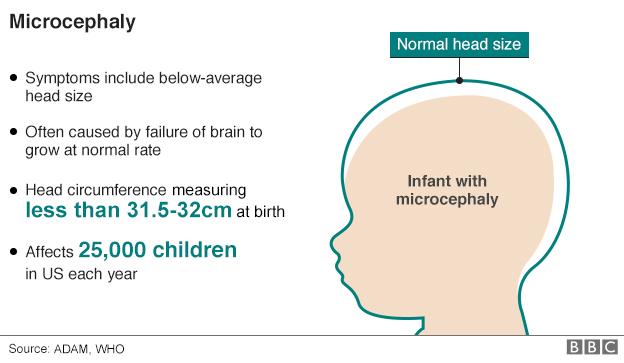
They say the lack of information is hampering efforts to provide diagnostic tests, drugs and vaccines, the AP news agency reported.
Laboratories in the US and Europe say they need samples from previous outbreaks if they are to carry out effective research on the evolution of the virus.
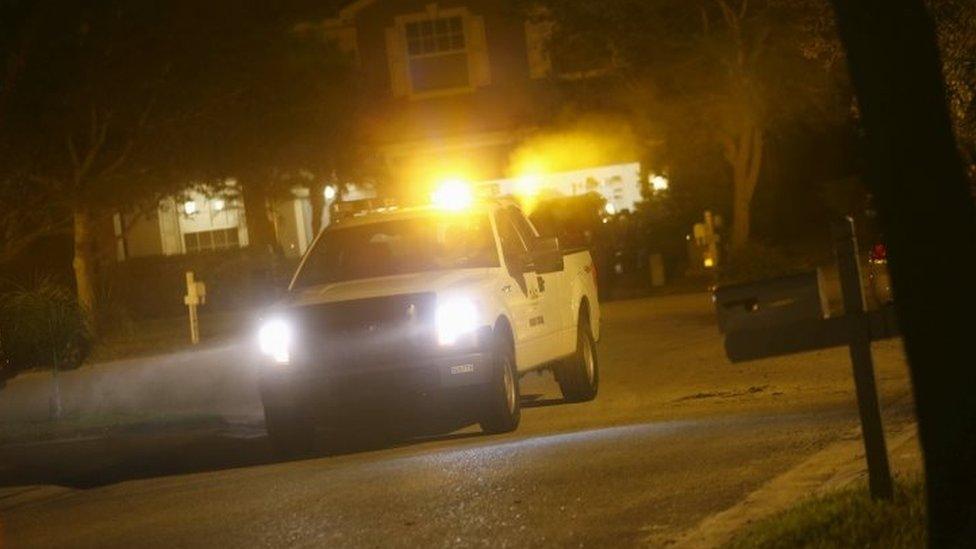
Florida is among several US states which are taking measure against the virus
A major obstacle is Brazilian law, correspondents say, because it is technically illegal for Brazilian researchers and institutes to distribute genetic material, including blood samples containing Zika and other viruses.
European countries were warned on Wednesday that they too needed to make preparations once the Aedes mosquitoes become active on the continent during the spring and summer months.
In other Zika news:
The outbreak was discussed by health ministers from 14 South American countries who vowed to take action to eliminate it
Colombian President Juan Manuel Santos tells the BBC he expects a rise in Zika cases
The World Health Organization has expressed fears over the reported sexual transmission of the Zika virus in Texas
Florida Governor Rick Scott declared a public health emergency in four counties with travel-related cases of the virus, while ordering state officials to increase mosquito control efforts in heavily populated locales including Miami and Tampa

More on the Zika crisis:
Microcephaly: Why it is not the end of the world
What you need to know Key questions answered about the virus and its spread
Travel advice Countries affected and what you should do
The mosquito behind spread of virus What we know about the insect
Abortion dilemma Laws and practices in Catholic Latin America

